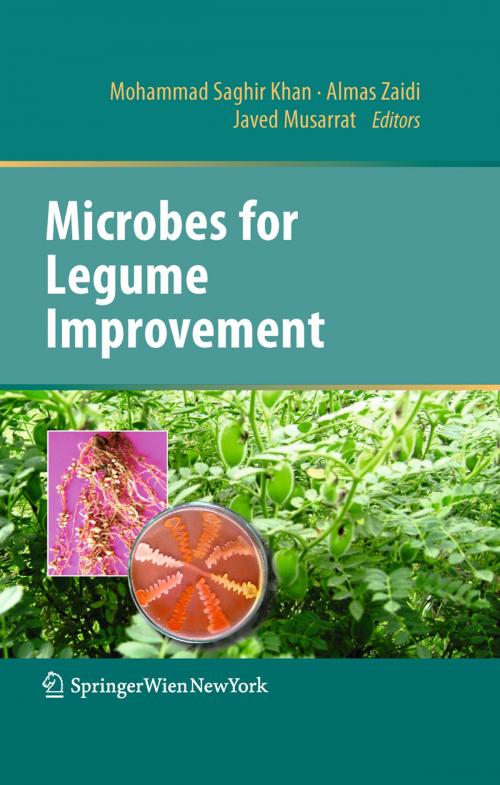Microbes for Legume Improvement
Nonfiction, Science & Nature, Science, Biological Sciences, Microbiology, Ecology| Author: | ISBN: | 9783211997536 | |
| Publisher: | Springer Vienna | Publication: | July 12, 2010 |
| Imprint: | Springer | Language: | English |
| Author: | |
| ISBN: | 9783211997536 |
| Publisher: | Springer Vienna |
| Publication: | July 12, 2010 |
| Imprint: | Springer |
| Language: | English |
Microbes for Legume Improvement comprises 21 chapters and provides comprehensive information on concepts of microbial technology for the improvement of legumes grown in different agro-ecosystems. The role of microbes including symbiotic nitrogen fixers, asymbiotic nitrogen fixing bacteria (like Azospirillum), plant growth promoting rhizobacteria (PGPR), phosphate-solubilizing microbes, arbuscular mycorrhizal fungi and biocontrol agents in the improvement of both conventional and forage legumes growth is discussed. The role of bacterial biofilms in legume-Rhizobium interactions and metal tolerant microbes in the improvement of legumes is dealt separately. Furthermore, recent findings on the taxonomic status of rhizobia, various signal molecules affecting symbiosis, legume-pathogen and legume-rhizobial interactions and proteomic analysis of legume–microbe interactions are addressed.
This volume gives a broad view of legume disease management using microbes and presents strategies for the management of cultivated legumes. It is therefore of special interest to both academics and professionals working in the field of microbiology, soil microbiology, environment microbiology, biotechnology and agronomy as well as plant protection sciences.
Microbes for Legume Improvement comprises 21 chapters and provides comprehensive information on concepts of microbial technology for the improvement of legumes grown in different agro-ecosystems. The role of microbes including symbiotic nitrogen fixers, asymbiotic nitrogen fixing bacteria (like Azospirillum), plant growth promoting rhizobacteria (PGPR), phosphate-solubilizing microbes, arbuscular mycorrhizal fungi and biocontrol agents in the improvement of both conventional and forage legumes growth is discussed. The role of bacterial biofilms in legume-Rhizobium interactions and metal tolerant microbes in the improvement of legumes is dealt separately. Furthermore, recent findings on the taxonomic status of rhizobia, various signal molecules affecting symbiosis, legume-pathogen and legume-rhizobial interactions and proteomic analysis of legume–microbe interactions are addressed.
This volume gives a broad view of legume disease management using microbes and presents strategies for the management of cultivated legumes. It is therefore of special interest to both academics and professionals working in the field of microbiology, soil microbiology, environment microbiology, biotechnology and agronomy as well as plant protection sciences.















